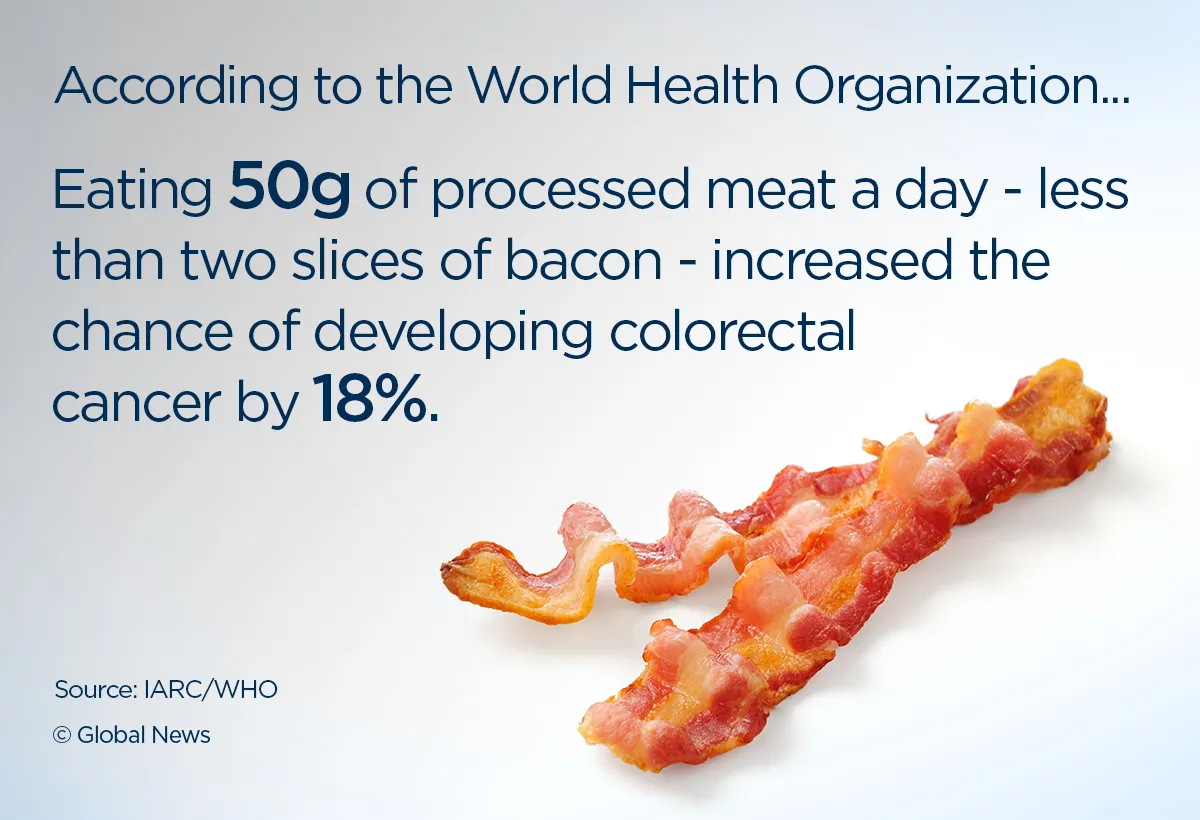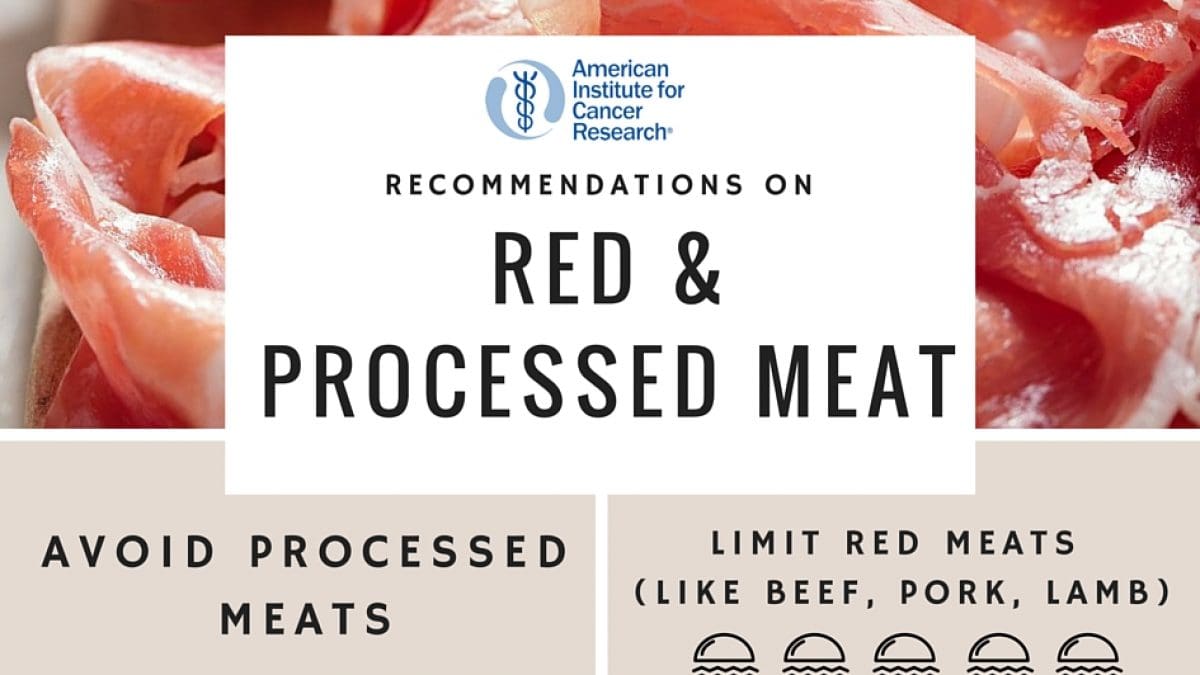The link between processed meats and cancer risk continues to raise alarm as research highlights their harmful effects on health. Products like bacon, sausages, ham, and deli meats undergo preservation methods that introduce carcinogenic compounds such as nitrites and polycyclic aromatic hydrocarbons (PAHs). Classified as Group 1 carcinogens by the World Health Organization (WHO), these foods have been strongly associated with colorectal cancer and other types of malignancies. With global cancer rates climbing steadily, understanding the risks tied to processed meat consumption is essential for making healthier dietary choices. This article explores the science behind these concerns, examines how processing methods influence health outcomes, and provides practical strategies for reducing exposure while maintaining a balanced diet
The link between diet and disease has long been a topic of interest and research in the world of public health. With the rise of processed foods in our modern society, there has been increasing concern about the potential health consequences of consuming such products. In particular, the consumption of processed meats has been a major focus of research, with numerous studies examining the impact on cancer risk. This topic has gained particular attention due to the alarming rise in cancer rates worldwide. According to the World Health Organization (WHO), cancer is projected to become the leading cause of death globally by the year 2030. In light of this, it is crucial to understand the potential impact of processed meats on cancer risk, and to consider the implications for public health and individual dietary choices. This article will delve into the current research and evidence surrounding the link between processed meats and cancer risk, exploring the types of processed meats, their composition and how they are prepared, and the potential mechanisms by which they may contribute to the development of cancer. Additionally, we will discuss the role of dietary guidelines and recommendations in managing cancer risk and promoting healthy eating habits.
Processed meats linked to increased cancer risk

Numerous studies and research have consistently indicated a concerning association between the consumption of processed meats and an increased risk of developing certain types of cancer. Processed meats, which include products such as sausages, bacon, ham, and deli meats, undergo various methods of preservation and preparation, often involving the addition of chemicals and high levels of sodium. These processes, combined with the high fat content and the potential formation of carcinogenic compounds during cooking, have raised significant concerns among health experts. The World Health Organization’s International Agency for Research on Cancer (IARC) has classified processed meats as Group 1 carcinogens, placing them in the same category as tobacco smoking and asbestos exposure. It is crucial to raise awareness about the potential health risks associated with consuming processed meats and encourage individuals to make informed decisions about their dietary choices to reduce cancer risk.
Understanding the types of processed meats
Processed meats can be classified into various types based on their ingredients, preparation methods, and characteristics. One common type is cured meats, which undergo a curing process using salt, nitrates, or nitrites to enhance flavor and extend shelf life. Examples of cured meats include bacon, ham, and corned beef. Another type is fermented meats, which involve the addition of beneficial bacteria or cultures to enhance taste and preservation. Salami and pepperoni are popular examples of fermented meats. Additionally, there are cooked processed meats, such as hot dogs and sausages, which are typically made by grinding and mixing meat with additives, flavorings, and binders before cooking. Understanding the different types of processed meats can provide insight into the various methods used in their production and enable individuals to make informed choices about their consumption.
The role of preservatives and additives

Preservatives and additives play a significant role in the production of processed meats. These substances are used to enhance flavor, improve texture, extend shelf life, and prevent the growth of harmful bacteria. Commonly used preservatives include sodium nitrite and sodium nitrate, which are added to inhibit the growth of bacteria like Clostridium botulinum and prevent the formation of botulism toxin. Additives such as phosphates and sodium erythorbate are used to improve the moisture retention and color stability of processed meats. While preservatives and additives can be beneficial in terms of food safety and product quality, it is important to note that excessive consumption of processed meats containing these substances may have potential health risks. Therefore, it is crucial for individuals to be aware of the presence and purpose of preservatives and additives in processed meats and make informed choices regarding their dietary intake.
Effects of high consumption levels
Consuming processed meats in high quantities has been associated with several adverse health effects. One of the most concerning risks is an increased likelihood of developing certain types of cancer. Research has shown a clear link between high consumption of processed meats and an elevated risk of colorectal cancer. The World Health Organization’s International Agency for Research on Cancer has classified processed meats as Group 1 carcinogens, meaning they are known to cause cancer in humans. Additionally, excessive intake of processed meats has been linked to an increased risk of stomach, pancreatic, and prostate cancers. These findings highlight the importance of moderation and choosing healthier alternatives to processed meats to reduce the potential risks associated with their high consumption levels.
Limiting processed meats for prevention

Processed meats are ubiquitous in our modern food landscape and are often a staple in many individuals’ diets. However, it is crucial to recognize the impact that these meats can have on our long-term health, specifically in relation to the prevention of cancer. Research consistently suggests that limiting the consumption of processed meats is an effective strategy in reducing the risk of developing various types of cancer. By opting for alternative sources of protein, such as lean meats, poultry, fish, legumes, and plant-based proteins, individuals can significantly lower their exposure to the harmful compounds found in processed meats. Additionally, incorporating a diverse range of fruits, vegetables, whole grains, and healthy fats into one’s diet can provide essential nutrients and antioxidants that have been shown to have protective effects against cancer. Taking proactive steps to limit processed meat intake and make healthier dietary choices is an integral part of a comprehensive cancer prevention strategy.
Balancing protein intake with alternatives
When considering our protein intake, it is important to explore alternatives that can provide the necessary nutrients while minimizing the potential risks associated with processed meats. While lean meats, poultry, and fish are often regarded as healthy protein sources, individuals can also incorporate plant-based proteins, such as legumes, tofu, tempeh, and seitan, into their diets. These alternatives not only offer essential amino acids but also provide additional benefits such as fiber, vitamins, and minerals. Furthermore, exploring a variety of protein sources ensures a well-rounded nutrient profile and can help individuals achieve a balanced and diverse diet. By incorporating these protein alternatives into our meals, we can make informed choices that prioritize our long-term health and reduce the potential risks associated with processed meats.
Making informed and healthier choices

It is crucial to prioritize making informed and healthier choices when it comes to our diet and overall well-being. This entails being mindful of the ingredients and nutritional content of the foods we consume. By reading labels and understanding the impact of certain ingredients on our health, we can make educated decisions about what to include in our diets. Additionally, staying well-informed about current research and recommendations can help us navigate the vast array of available food options. Taking the time to educate ourselves about nutrition and making conscious choices that align with our health goals can contribute to a lifestyle that promotes vitality and reduces the risk of various health concerns.
Importance of moderation and variety
Achieving a balanced diet that promotes overall health and reduces the risk of certain health concerns requires incorporating moderation and variety into our eating habits. Moderation allows us to enjoy a wide range of foods while avoiding excessive consumption of any one type. By practicing portion control and moderation, we can satisfy our cravings without compromising our health. Additionally, incorporating variety into our diet ensures that we receive a diverse array of nutrients necessary for optimal functioning. Different foods provide unique combinations of vitamins, minerals, and other essential compounds, and by including a variety of fruits, vegetables, whole grains, lean proteins, and healthy fats, we can ensure that our bodies receive the necessary nourishment for sustained wellness. Embracing moderation and variety in our eating habits not only enhances our overall diet quality but also promotes long-term health and well-being.
In conclusion, the evidence linking processed meats to an increased risk of cancer is substantial and cannot be ignored. While it may be difficult to completely eliminate processed meats from our diets, it is important to be aware of the potential health risks and to limit our consumption as much as possible. Incorporating more fruits, vegetables, and lean proteins into our diets can not only reduce our risk of cancer, but also improve our overall health. As always, it is best to consult with a healthcare professional for personalized dietary recommendations. Let us make conscious choices for our health and well-being.
FAQ
What is the current scientific evidence regarding the link between processed meats and an increased risk of cancer?
There is strong scientific evidence suggesting that consumption of processed meats is associated with an increased risk of certain types of cancer, particularly colorectal cancer. Processed meats are those that have been preserved through curing, smoking, or adding chemical preservatives. The high levels of salt, nitrates, and other additives in these meats are believed to contribute to the increased risk. However, it’s important to note that the overall risk of developing cancer due to processed meat consumption is relatively small, and other lifestyle factors such as smoking, obesity, and lack of exercise play a more significant role in cancer risk. Nonetheless, it is advisable to limit processed meat consumption as part of a healthy diet.
Are there specific types of processed meats that are more strongly associated with an increased cancer risk?
Yes, several types of processed meats have been found to be more strongly associated with an increased cancer risk. According to the International Agency for Research on Cancer (IARC), consumption of processed meats such as bacon, sausages, hot dogs, and ham has been classified as carcinogenic to humans, specifically linked to an increased risk of colorectal cancer. These meats are often preserved by smoking, curing, or adding salt or chemical preservatives, which can contribute to the formation of cancer-causing compounds. It is recommended to limit the consumption of processed meats to reduce the risk of cancer.
How does the consumption of processed meats impact the overall cancer risk compared to other lifestyle factors such as smoking or physical inactivity?
Consumption of processed meats has been linked to an increased risk of cancer, particularly colorectal cancer. However, it is important to note that the impact of processed meat consumption on cancer risk is relatively smaller compared to well-established risk factors like smoking and physical inactivity. Smoking is the leading cause of preventable cancer deaths and is responsible for a significant proportion of cancer cases. Likewise, physical inactivity is associated with a higher risk of various cancers. While reducing processed meat intake is advisable for overall health, addressing smoking and physical inactivity should be prioritized for cancer prevention.
Are there any potential mechanisms by which processed meats may increase the risk of developing cancer?
Yes, there are several potential mechanisms by which processed meats may increase the risk of developing cancer. One mechanism is the presence of carcinogenic compounds such as nitrites and polycyclic aromatic hydrocarbons (PAHs), which can form during the processing and cooking of meats. These compounds have been linked to an increased risk of cancer. Another possible mechanism is the high fat and salt content in processed meats, which can promote inflammation and oxidative stress, both of which are associated with an increased risk of cancer. Additionally, the processing of meats can lead to the formation of heterocyclic amines (HCAs) and advanced glycation end products (AGEs), which have been implicated in cancer development.
Are there any guidelines or recommendations from health organizations regarding the consumption of processed meats to reduce cancer risk?
Yes, there are guidelines and recommendations from health organizations regarding the consumption of processed meats to reduce cancer risk. The World Health Organization (WHO) has classified processed meats, such as bacon, sausages, and ham, as Group 1 carcinogens, indicating that they are known to cause cancer. The American Cancer Society recommends limiting the intake of processed meats and suggests opting for lean meats, fish, poultry, or plant-based proteins as healthier alternatives. Additionally, the World Cancer Research Fund advises avoiding processed meats altogether, as they have been linked to an increased risk of colorectal cancer.



